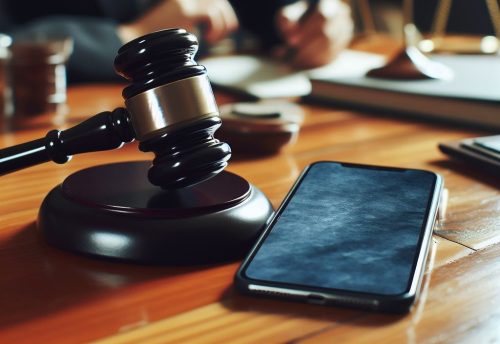Can the Police Access My Phone Without the PIN or Pattern in England? Understanding Legal Boundaries and Protections

Can the Police Access My Phone Without the PIN or Pattern in England? Understanding Legal Boundaries and Protections
In the digital era, mobile phones are repositories of personal information, raising important questions about privacy and law enforcement access. One such question is whether the police in England can access the content of a phone without the owner’s consent, particularly without the PIN or pattern. This article explores the legal framework surrounding this issue, the extent of police powers, and the importance of understanding your rights.
Legal Framework Governing Police Access to Mobile Phones

The powers of the police in England to access a mobile phone without the owner’s PIN or pattern are governed by a complex set of laws and regulations, including the Regulation of Investigatory Powers Act 2000 (RIPA), the Police and Criminal Evidence Act 1984 (PACE), and the Investigatory Powers Act 2016 (IPA), also known as the “Snooper’s Charter“.
Conditions Under Which Police Can Access Phones
- With a Warrant: Under the IPA, the police can obtain a warrant to intercept and access electronic devices. This can include hacking into a device if necessary.
- During an Arrest: Under PACE, the police have the power to seize and examine a mobile phone if it is relevant to their investigation, especially when an individual is under arrest.
- Encryption and RIPA: If the phone is encrypted, the police may issue a notice under RIPA requiring the disclosure of the PIN or pattern. However, accessing the phone without this information is more challenging.
Technological Capabilities and Legal Limits

- Technical Means: Police may use various technical means to access data on a phone. However, advanced encryption can make it difficult to access information without the correct PIN or pattern.
- Legal Constraints: Any attempt to access phone data must be within the legal framework and subject to oversight to prevent abuse of power.
Protecting Individual Privacy
- Human Rights Considerations: The European Convention on Human Rights, particularly Article 8, which guarantees the right to respect for private and family life, places constraints on the extent to which the police can intrude into personal data.
- Judicial Oversight: Warrants and legal processes to access phone data are subject to judicial oversight, providing a check against unwarranted intrusions.
The Importance of Understanding Your Rights

- Consent: You are not obliged to voluntarily provide your PIN or pattern to the police. However, specific legal notices may compel disclosure under certain conditions.
- Legal Representation: If you are requested or compelled to provide access to your phone, it is advisable to seek legal advice before doing so. A solicitor can guide you on your rights and the legality of the request.
- Navigating Complexities: The intersection of privacy rights and police powers is complex, and understanding where legal boundaries lie is crucial.
Conclusion: Can the Police Access My Phone without The PIN or Pattern?

In England, while the police have certain powers to access data on a mobile phone without the owner’s PIN or pattern, there are legal and technical limitations to these powers.
The balance between law enforcement needs and individual privacy rights is a delicate one, governed by a rigorous legal framework intended to protect against undue intrusions.
In situations where your data privacy is at stake, it is important to be aware of your rights and seek legal advice to navigate these complex legal waters effectively.
Notice: Informational Content Disclaimer
The content provided on this website, including articles, blog posts, and other informational materials, is intended for general informational purposes only. It is not intended as, and should not be considered, legal advice.
Visitors to this website should be aware that the information presented here is not a substitute for seeking legal advice from a qualified solicitor or legal professional. Each individual's legal situation is unique, and the information provided may not be applicable to specific circumstances.
If you require legal advice or have specific legal questions, we encourage you to contact us directly. Our experienced team of solicitors is here to assist you with your legal needs and provide tailored advice to address your concerns.
Please be advised that any communication through this website, including the use of contact forms or email, does not create a solicitor-client relationship. Confidential or time-sensitive information should not be sent through this website. To establish a solicitor-client relationship and discuss your legal matters in detail, please contact us for a consultation.
We strive to provide accurate and up-to-date information, but we make no representations or warranties regarding the accuracy, completeness, or suitability of the information contained on this website. We shall not be liable for any reliance placed on the information provided herein.
Thank you for visiting our website. We look forward to the opportunity to assist you with your legal needs.




